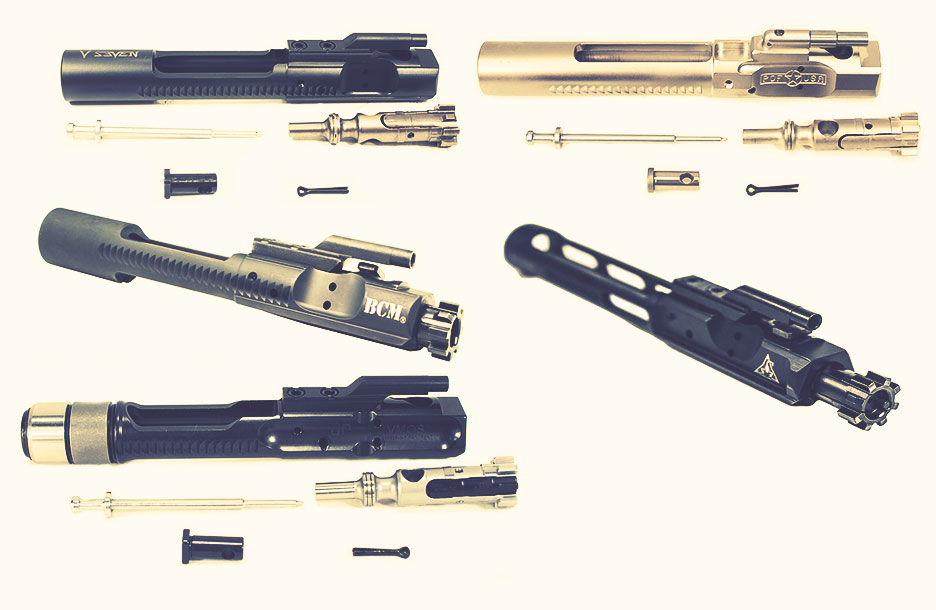Hello.
Are all AR15 bolt carriers the same and not caliber specific?
A bolt carrier group, or BCG, is a critical part of an AR-15 or other rifle. It is the “engine” that drives the weapon, loading, cocking, and firing the round. The BCG is caliber specific, meaning that different calibers require different BCGs. For example, a .223/5.56mm rifle will use a different BCG than a .308/7.62mm rifle. Bolt carrier groups can be made from different materials such as steel or aluminum, and can be finished in various ways including chrome plating or nickel boron coating.
Yes, bolt carrier groups (BCGs) are caliber specific. This is because the BCG is what allows a rifle to chamber and fire a particular caliber of ammunition. So, for example, if you have a .223 Remington rifle, you would need a .223 BCG for it to function properly. Conversely, if you tried to use a .308 Winchester BCG in that same rifle, it would not work as the dimensions are not compatible.
Different calibers require different size BCGs – so make sure you get the right one for your needs!
A bolt carrier group (BCG) is a collection of parts that work together to cycle a firearm. The three main parts of a BCG are the bolt, the carrier, and the firing pin.
Bolt carrier groups are caliber specific. This means that there is a different BCG for each caliber of firearm. For example, you would use a different BCG for a 5.56mm weapon than you would for a 7.62mm weapon.
The reason that BCGs are caliber-specific is that the dimensions of the various calibers are different. This means that the components of the BCG must be dimensioned differently to properly function with a particular caliber bullet.
When shopping for a BCG, it is important to make sure that you are getting the correct one for your firearm. Many retailers will sell BCGs that are advertised as “universal” or “multi-caliber.” However, these BCGs are usually not true universal designs. They may work with some calibers, but not others.
Bolt carrier groups (BCGs) are not caliber specific. They can be used with different caliber rifles as long as the BCG is compatible with the rifle’s action and the bolt head is of the correct diameter for the chamber. It’s important to note that416 Bolt Carrier Groups . We also offer adjustments to If you pressure test your complete upper receiver without a BCG installed and find it leaking, your root problem is more than likely your ejector port cover assembly o-ring. contaminationStop asking if a certain BCG will fit in yourAR15, everyone’s got an opinion but this seems to be The Truth™ Have you ever pulled back on a charging handle only to haveejector port cover fly out and go sailing across the room? Did you ever put an AR15 together only to find that your charging handle wouldn’t budge? Bolt carrier groups (BCGs) are the heart of any AR15 or AR10 type rifle or pistol. They ensure smooth and reliable cycling of your firearm’s action. Bolt carrier groups come in a variety of different finishes, calibers, and styles. With so many options available, it can be difficult to know which BCG is right for your firearm. Here is a quick guide to help you choose the best BCG for your AR15 or AR10 type rifle or pistol: Bolt Carrier Group (BCG) – Ammofire Editor’s Choice
Yes, bolt carrier groups are definitely caliber specific. The type of cartridge that a given bolt carrier group is designed for will determine the size and shape of the bolt carrier group. For example, an AR-15 bolt carrier group will not be compatible with an AR-10 rifle. Likewise, a .223/5.56mm bolt carrier group will not be compatible with a 7.62x51mm/.308 Winchester firearm. If you try to use the wrong type of bolt carrier group in a given firearm, serious damage could occur to both the gun and the ammo itself, so it’s important to make sure you’re using the correct BCG for your specific needs.

